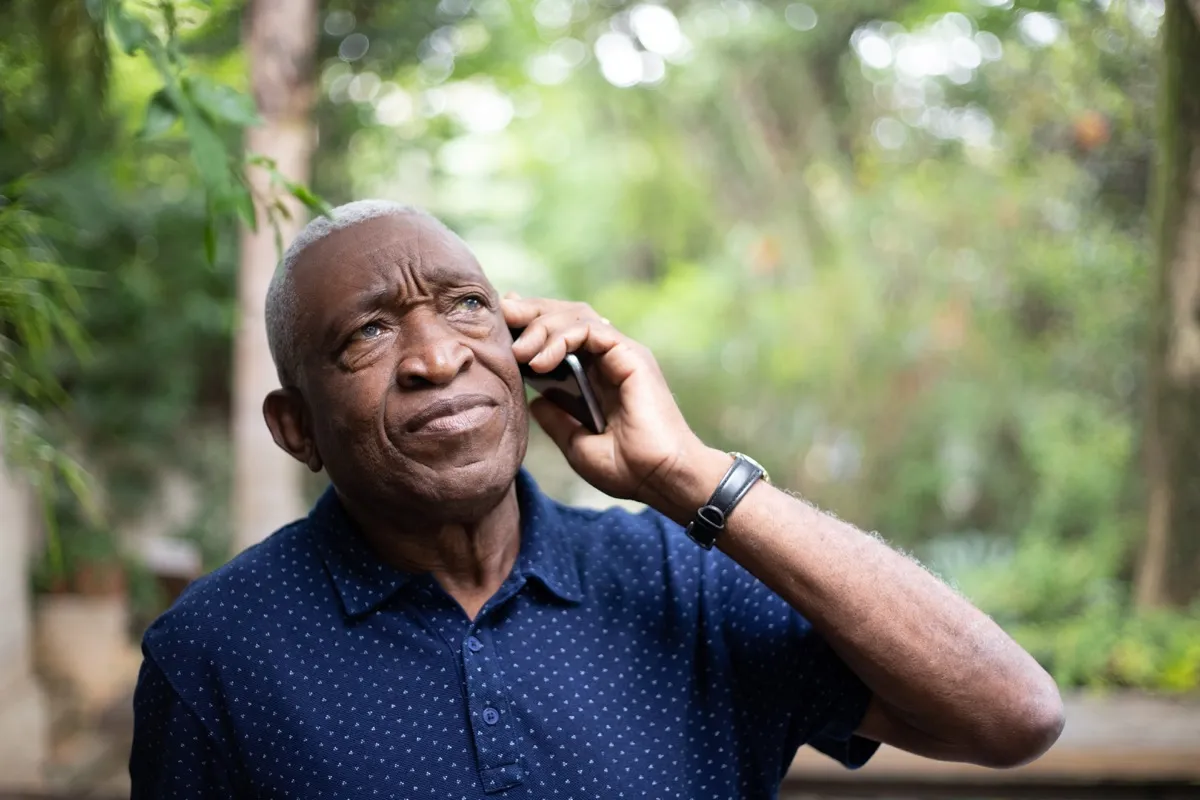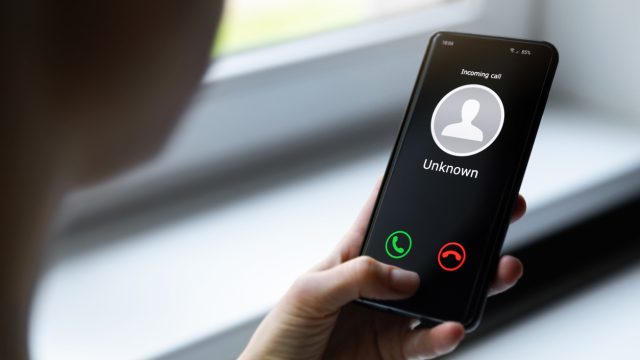The No. 1 Biggest Myth About Robocalls Has Just Been Debunked
Those spam calls may be incredibly annoying, but a new study says doing this won't stop them.
They can come at any hour on any day, no matter where you are or what you're doing—and almost always when you want them least. Whether it's a number barely different from your own or one that's completely unfamiliar, the dreaded robocall is an inescapable nuisance of the modern era. The conventional wisdom has been that you should not answer unsolicited calls, and that simply ignoring them will lead to fewer calls. But thanks to a recent study, this myth about putting the mute on robocalls has just been debunked. "We find no evidence that answering unsolicited calls increases the amount of unsolicited calls received, overturning popular wisdom," the researchers from North Carolina State University concluded.
For years, the Federal Communications Commission has been warning people: "Don't answer calls from unknown numbers. If you answer such a call, hang up immediately." The AARP also claims that "even just pressing a key or answering a question alerts scammers that they've hit on a 'live' number, and they'll call it again and again." But according to the new research on anonymous robocalls from North Carolina State University, all of those ghosted phone calls may not have been saving you any grief after all. Their findings show that answering an unsolicited call doesn't make your number more likely to receive a higher volume of them.
To conduct their study, the researchers set up over 66,600 phone lines exclusively to monitor robocall activity. Over the course of 11 months, the lines received just under 1.5 million of them, with 146,000 of them answered to be recorded and analyzed. The researchers found that contrary to popular belief, not picking up did nothing to diminish the onslaught of unwanted calls.

"For years, messaging from government agencies and trusted nonprofit organizations has focused on reducing robocalls by not answering calls from unknown numbers," study author Brad Reaves, PhD, an assistant professor of computer science, said in a statement. "And while we encourage people to avoid engaging with robocalls, we found that answering a robocall has no effect on the number of robocalls you receive."
The findings also revealed that a majority of calls could be tied back to just a handful of campaigns, proving that eradicating unsolicited calls once and for all might be easier for federal regulators than originally thought.
RELATED: For more up-to-date information, sign up for our daily newsletter.
While this new research may have debunked the greatest robocall myth out there, it also comes at a time when phone systems are a vital tool in the fight against a national health crisis. "The COVID-19 pandemic has really highlighted the importance of this work, because robocalls have made people less likely to answer phone calls from unknown numbers—and that makes it more difficult for contact tracers to do their jobs," study author Sathvik Prasad, a PhD student at NC State, said in a statement
So the next time you get a call from an unknown number, feel free to pick up without fear of being bombarded with more calls. Who knows? It just might be someone you actually want to hear from. And for more on what you shouldn't be doing on the phone right now, check out The FBI Warns You Not to Fall for This Coronavirus-Related Scam.






















